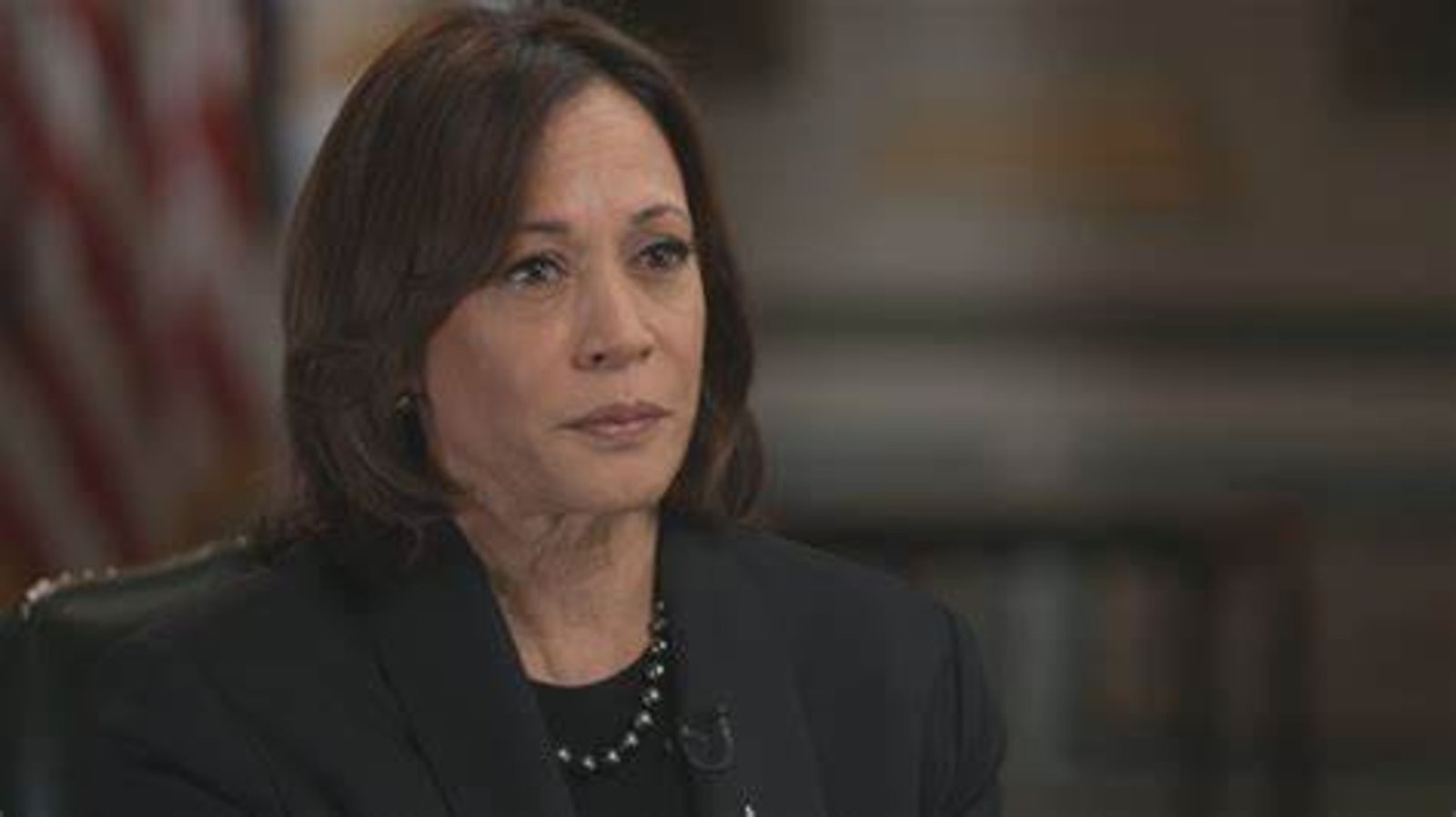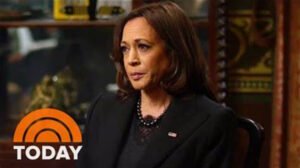
5 Takeaways from Harris Interview.
Vice President Kamala Harris recently sat down for a challenging interview with CBS’s “60 Minutes.” The discussion covered various pressing issues, including immigration, foreign policy, and her relationship with former President Donald Trump. 5 Takeaways from Harris Interview
1. Focus on Border Security
Harris addressed the ongoing challenges of immigration policy. She stated that migration is a “longstanding problem.” When asked about the Biden administration’s actions, she pointed to Congress’s role in addressing border security.
Harris emphasized that significant migration surged during the COVID-19 pandemic. She mentioned that immigration reform was proposed early in 2021 but faced opposition from Republicans.
In response to a question about whether earlier action could have prevented the crisis, Harris deflected. Instead, she highlighted recent reductions in migrant crossings, putting pressure on Congress to act decisively.

Vice President Kamala Harris recently sat down for a challenging interview with CBS’s “60 Minutes.”
2. No Meeting with Putin
On the topic of foreign relations, Harris was clear: she would not meet with Russian President Vladimir Putin. The Vice President stressed that Ukraine must play a central role in any discussions about its future.
Harris asserted that “there will be no success in ending that war without Ukraine.” She avoided committing to expanding NATO to include Ukraine, saying they would address such issues when necessary.
Harris pointed out that if Trump were still president, “Putin would be sitting in Kyiv right now.” She reiterated her commitment to supporting Ukraine against Russian aggression.
3. Unlikely Allies with Liz Cheney
Cheney, who has become a notable critic of Trump, endorsed Harris.
Harris expressed her admiration for Cheney’s dedication to democracy. “That’d be great,” she replied when asked about their collaboration. The alliance highlighted a rare moment of bipartisanship in an increasingly polarized political climate.
4. Caution in Communication
The interview also featured Minnesota Governor Tim Walz, who discussed the importance of careful communication.
Walz shared that Harris had advised him to be more cautious with his words. “You need to be a little more careful,” she told him, emphasizing the importance of clarity in political discourse.
Harris noted that in today’s fast-paced media environment, every word can be scrutinized, and miscommunication can quickly escalate into controversy. She advised Walz to be more mindful in his expressions, illustrating her belief that clarity is essential for effective leadership. This caution reflects a broader understanding that words carry weight; they can shape public perception and influence policy discussions.
Furthermore, Harris’s emphasis on communication resonates with the current political landscape, where misinformation and sound bites often overshadow substantive dialogue. By promoting careful articulation, she advocates for a more thoughtful approach to addressing complex issues. This method not only fosters trust but also encourages a more informed electorate.
The need for caution in communication is especially pertinent when discussing sensitive topics like immigration and foreign policy. Harris’s recognition of this need underscores her commitment to transparency and accountability. Leaders must strive to communicate their policies and intentions clearly to avoid misunderstandings that could hinder progress.
5. Critique of Trump’s Media Strategy
Harris took the opportunity to criticize Trump’s approach to interviews. She pointed out that he often avoids challenging questions.
“If he is not going to give your viewers the ability to have a meaningful conversation,” she remarked, “then watch his rallies.” Harris believes the American public is eager for a leader who will engage honestly and constructively.
She concluded that the nation is ready to “turn the page” from Trump’s divisive rhetoric.
In her recent interview with “60 Minutes,” Vice President Kamala Harris delivered a pointed critique of Donald Trump’s media strategy. She emphasized that his approach often prioritizes self-promotion over substantive dialogue. Harris noted that Trump tends to engage only with friendly media outlets, avoiding tough questions and challenging conversations that are crucial for a healthy democracy.
Harris argued that this tactic prevents meaningful engagement with the public. Instead of addressing pressing national issues, Trump frequently focuses on personal grievances, diverting attention from the concerns of everyday Americans. By doing so, he risks alienating voters who seek genuine discussions about policy and the country’s future. Harris believes this approach reflects a broader trend of polarization in American politics, where leaders cater to their bases rather than fostering inclusive dialogue.
She pointed out that Trump’s choice to back out of interviews with more critical media demonstrates a reluctance to confront accountability. Harris contrasted her own willingness to engage with diverse audiences, showcasing her commitment to open dialogue. By participating in interviews that challenge her, she aims to communicate directly with the electorate, providing them with clear insights into her policies and vision.
Harris’s critique underscores the importance of accountability in leadership. She suggested that a leader’s ability to address tough questions is vital for restoring public trust. As the nation approaches a critical election, her comments highlight candidates’ need to engage openly and honestly with the media and voters alike. This commitment to dialogue is essential for building a stronger, more unified political landscape. In an era marked by division, Harris’s stance calls for a return to meaningful conversations that prioritize the interests of the American people.
Conclusion
Her responses revealed her stance on immigration, foreign policy, and the importance of communication. With the election approaching, these insights could play a crucial role in shaping public opinion. As she navigates this challenging landscape, her commitment to bipartisan cooperation remains evident.








